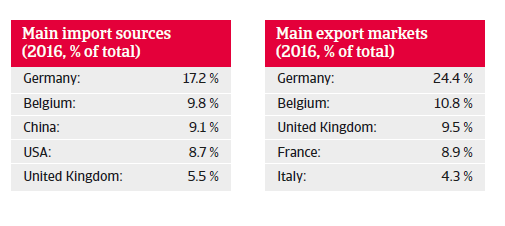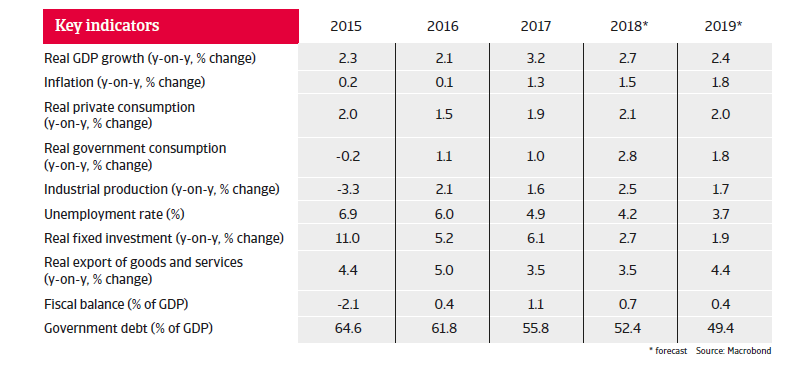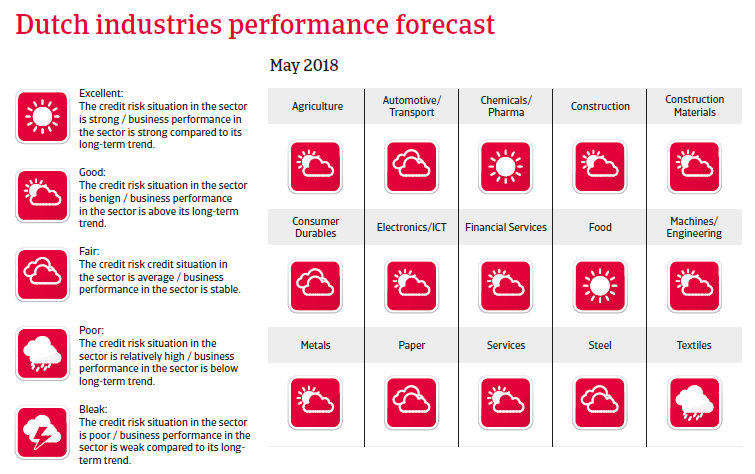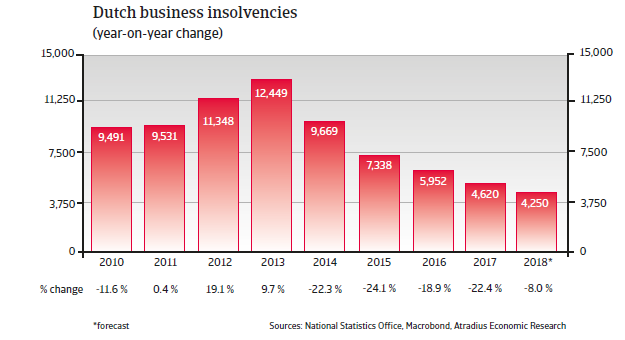A potential downside risk would be another deterioration in house prices, given high levels of mortgage debt and banks’ exposure to the housing market.



The insolvency environment
Rate of decrease in corporate insolvency expected to slow down in 2018
The economic slowdown in 2012 and 2013 triggered sharp increases in business insolvencies. Due to the economic rebound since 2014 business failures started to decrease again, declining 22.4% to 4,620 cases in 2017 (including sole proprietorships). While the positive trend is expected to continue in 2018, the improvement is expected to slow down to 8% year-on-year.

Economic situation
Solid growth to continue in 2018 and 2019
The Dutch economy is forecast to continue its robust growth in 2018 and 2019 after expanding 3.2% in 2017. All spending categories are expected to contribute to the economic expansion.
Both business and consumer sentiment are high. Private consumption benefits from decreasing unemployment (which has decreased substantially over the past three years), an increase in disposable income and a strong rebound in house prices since 2013.
Solid external demand from the eurozone supports export growth, while business investment growth is sustained by high business confidence, low interest rates and sustained demand.
However, a potential downside risk would be another deterioration in house prices, given high levels of mortgage debt and banks’ exposure to the housing market. Any major downward correction in the property market would negatively affect household consumption and the stability of the finance sector.
Another downside risk is the looming uncertainty around Brexit, due to very close trade and investment ties between the Netherlands and the UK. The sectors that would see the biggest impact are chemicals, electronics, food and metals.

